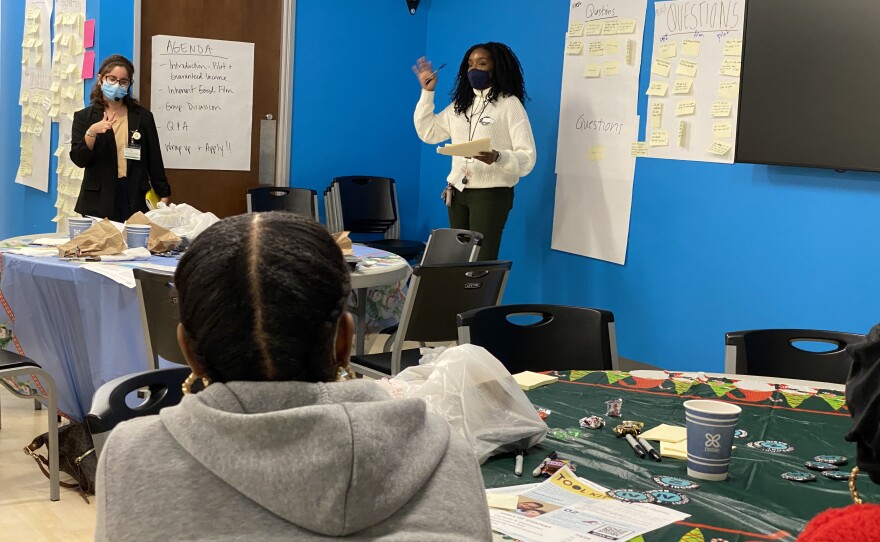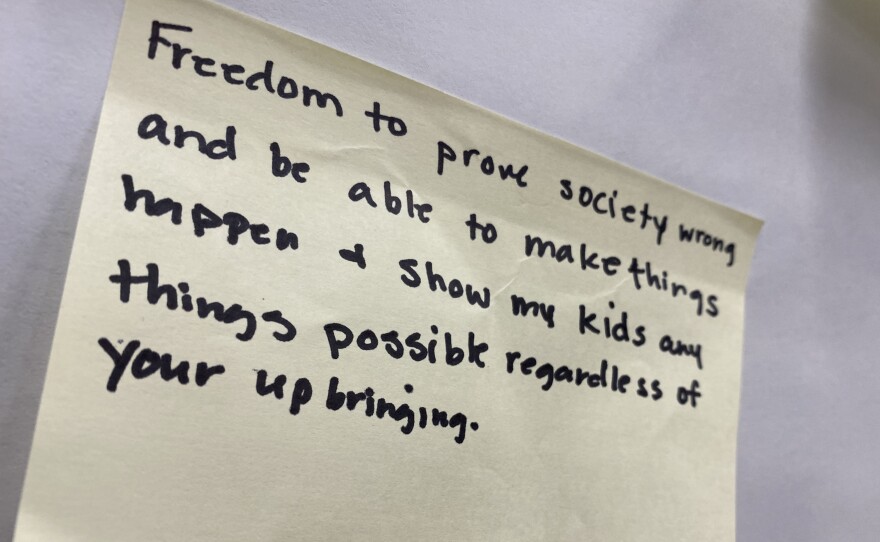San Diego’s first guaranteed income pilot program launched on Tuesday with 150 households across the county receiving their first monthly installment of $500. They will get the payment each month for the next two years.
“I am super excited to see families actually get the money that they've been waiting for and us to be able to support them in this way,” said Khea Pollard, who leads a program called San Diego for Every Child.
RELATED: California Program Giving $500 No-Strings-Attached Stipends Pays Off, Study Finds
The $2.9 million program is run by Jewish Family Service of San Diego with funding from the state’s budget surplus and Alliance Healthcare Foundation.
In order to qualify for the pilot program, families needed to have children 12 years old or under living in the household and be in one of the four priority ZIP codes in the county. They include: Encanto, Paradise Hills, San Ysidro and National City.

The ZIP codes were chosen because the program wanted to target communities of color that are more likely to be rent-burdened and experience high levels of childhood poverty, food insecurity and environmental pollution.
Pollard helped enroll many of the participating families and has heard firsthand how they plan to use the money.
“I've heard families say things like, 'I want to use this to pay for my family's medical bills, I want to find child care for my son or daughter,'” she said. “One family was talking to me about how to use this money to take her children out to have fun and do some bonding stuff.”
Unlike most other public benefit programs, San Diego’s guaranteed income project is not tied to a work requirement or U.S. citizenship. The money comes with “no strings attached,” which Pollard says is an important distinction.
“You are deserving of support because you are in need of support,” she said. “You know how to best use the money to support your family and the ways that they need it.”
The idea of universal basic income, or UBI, has become more accepted in recent years thanks in large part to 2020 Democratic presidential candidate Andrew Yang, who campaigned on the idea of giving all U.S. adults $1,000 of basic income a month.
While the idea has steadily gained supporters, a 2020 Pew Research Center survey showed a small majority of Americans (54%) oppose the idea of giving all adults a guaranteed income.

But that hasn’t stopped the programs from springing up across the country. San Diego is one of 36 national guaranteed income pilot programs launched through the Mayors for Guaranteed Income network since the initiative began in 2020.
San Diego’s program closely follows the successful 2019 pilot program launched in Stockton, California by then Mayor Michael Tubbs. A 2021 evaluation of that program by University of Pennsylvania researchers found employment among households receiving $500 each month increased by 12%.
Pollard said the idea dates back to work that began during the 1960s civil rights movement. Martin Luther King Jr., the Black Panthers and Johnnie Tillmon advocated for economic justice through direct payment and welfare programs.
“When I think about this work and the origins and how it gained traction and it being rooted and black liberation is just so powerful,” she said. “And when you see that and the ways in which it can liberate all people, it's even more powerful."
Once the two-year pilot is completed, the same researchers from the University of Pennsylvania that evaluated the Stockton program will produce a final report on how the San Diego pilot program impacted participating families.





